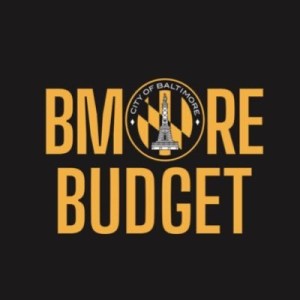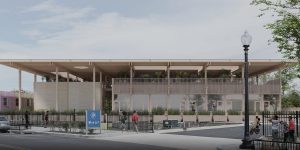By Megan Sayles,
AFRO Business Writer,
msayles@afro.com
Baltimoreans will have an opportunity to take part in the city’s budget-planning process for the 2024 fiscal year, which begins on July 1, 2023.
Mayor Brandon Scott and the Bureau of the Budget and Management Research (BBMR) launched a series of information sessions in December for residents to learn more about the process and share their priorities for investments and reductions in Baltimore City services.
The new budget will go into effect this summer, but only after two more public information sessions: Jan. 11, which will be hosted through Stones Phones, and Jan. 18, which will be hosted on Zoom, from 6:00 p.m. to 7:00 p.m.
Residents can also submit their input through Balancing Act, a budget simulation tool created by the city that allows users to adjust funding levels, revenue and expenditures according to their priorities. This feedback will be collected through Jan. 23.
“Historically, this has only happened at Taxpayers’ Night, and I thought we should do it in a way where we hit more citizens,” Mayor Scott told the AFRO. “At Taxpayers’ Night, we have groups that organize and come – and I think that’s great–but, for me, it was important for us to find ways to reach those people who aren’t as connected as people who are a part of organizations.”
Scott said it was important that feedback opportunities “reach what we call the everyday Baltimorean.”
For the 2024 fiscal year, Baltimore City forecasted a $16.6 million budget deficit. Scott said many residents have questions about how a city budget works.
He said a common question he receives around spending is why do Baltimore City Public Schools have a smaller budget than the Baltimore City Police Department? What people don’t realize is that the bulk of the school system’s funding is allocated by the State of Maryland.
The city’s budget is planned around the pillars of Scott’s Action Plan for Baltimore, which include building public safety, prioritizing youth, clean and healthy communities, equitable neighborhood development and responsible stewardship of city resources.
In the Balancing Act simulation tool, users have the option to make changes, including reducing residential property taxes, raising income tax for households that make over $500,000, eliminating the parking tax and increasing the number of incentives for first-time homebuyers.
“Resident engagement plays a vital role to ensure the city’s budget is in line with our community’s priorities. This year’s outreach efforts have been focused on creating opportunities for residents to learn more about the city’s budget and then offer their ideas and suggestions on where to prioritize spending,” said Laura Larsen, Baltimore’s budget director. “We are looking forward to getting this feedback at a point in the planning process where it can be shared with policymakers and considered while they are making critical decisions about the city’s FY24 budget.”
Megan Sayles is a Report for America Corps member.
Help us Continue to tell OUR Story and join the AFRO family as a member –subscribers are now members! Join here!
The post Mayor Brandon Scott kicks off new year with feedback requests on city’s 2024 fiscal budget appeared first on AFRO American Newspapers .











